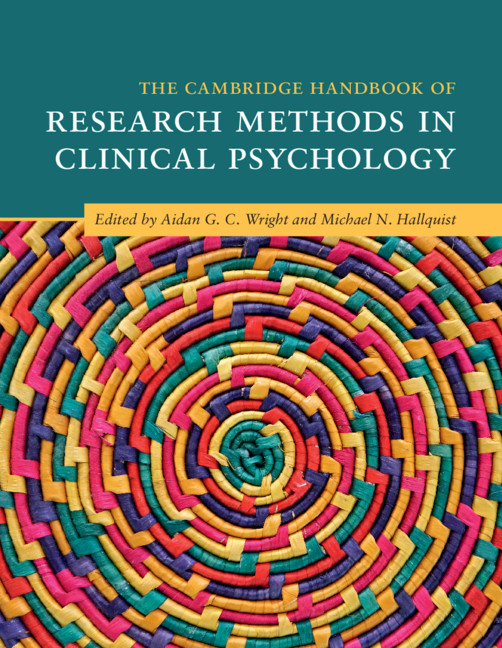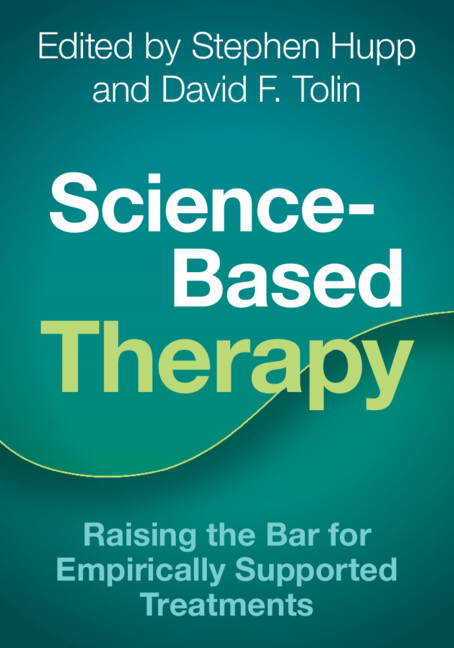Research Design in Clinical Psychology
Gain a thorough understanding of the entire research process – developing ideas, selecting methods, analyzing and communicating results – in this fully revised and updated textbook. The sixth edition comprises the latest developments in the field, including the use of technology and web-based methods to conduct studies, the role of robots and artificial intelligence in designing and evaluating research, and the importance of diversity in research to inform results that reflect the society we live in. Designed to inspire the development of future research processes, this is the perfect textbook for graduate students and professionals in research methods and research design in clinical psychology.
- Examines ethical issues and scientific integrity, and their pervasive role in the research process from beginning to end
- Offers new and revised examples, drawn from topics of general interest such as sport, climate change, and mobile phone use, as well as from other disciplines
- Focuses on 'Big Data' as a methodological innovation rather than merely the use of large data sets, and addresses the opportunities and challenges that this data presents to psychological researchers (e.g. privacy protections and ethics)
- Stresses the importance of open science to make research practices explicit and transparent, as well as the role that the Reproducibility Project has played in the development and implementation of procedures to replicate studies, and the impact these have had on research practices as a result
Reviews & endorsements
‘Dr. Kazdin’s Research Design in Clinical Psychology (6th edition) is the perfect textbook to help students develop skills in and appreciation for sound research design. Research Methods is often the course that students dread, finding the material dry and inaccessible, but Dr. Kazdin’s approach to balancing scientific rigor with humor will make the material come alive for students. He provides numerous examples to guide students in understanding why certain methods are needed and when they are appropriate.’ Arielle Baskin-Sommers, Yale University
‘A wonderful approach to research design, successfully leading students and faculty to focus upon those underlying critical questions. An important subject which can be overwhelming for many becomes alive and intriguing, if not fascinating. This sixth edition utilizes visionary real-life examples to bring home underlying and often complex concepts.’ Pat DeLeon, University of Hawaii
‘This invaluable text approaches methodology as a ‘way of thinking’ to help students see the challenge and excitement of designing solid, useful psychological research. Rather than marching through a checklist of research designs, Kazdin provides a principle-based approach to help students understand the rationale and reasoning behind selection of specific empirical approaches. No one approach is centered, as Kazdin recognizes the value of using different lenses to study the complexity of human behavior. Thank you, Dr. Kazdin, for this updated, useful resource.’ J. Gayle Beck, University of Memphis
‘Science is a way of knowing how the world and the people in it work, free of the biases, distortions, and prejudices so prevalent today. In this, the sixth edition of Research Design in Clinical Psychology by Alan Kazdin, one finds the most comprehensive, lucid, and useful description of the various scientific methods applicable in clinical psychology in a well-written, well-organized, and easy-to-digest presentation. From the initial step of developing an idea, through randomized controlled trials, single case experimental designs, as well as observational and qualitative methods, and accompanied by review questions and key comments, students and established researchers alike will find everything they need to engage in meaningful research. There is good reason this book has become the gold standard.’ David H. Barlow, Boston University
‘Research Design in Clinical Psychology is required reading for anyone interested in conducting clinical research. I learned how to design research studies using this book and I still use it to this day as a reference to guide my work and that of my students and trainees. It’s comprehensive, incredibly clear, and the updates in this new edition make this a must-have book.’ Matthew K. Nock, Harvard University
‘Alan Kazdin is one of the great minds of our generation. His intellectual and empirical leadership has placed him at the summit of clinical psychological science, and this sixth edition of Research Design in Clinical Psychology nicely illustrates his contributions as teacher and sensei. Written with clarity, style, and wit, the book provides a soup-to-nuts guide to the research process. It starts with the basic question of why we even need science, explains what is needed for valid inference, describes diverse research designs and ways to analyze data, and offers characteristically wise perspectives on ethics and scientific integrity. This volume is an ideal text for clinical science students and an invaluable reference for the rest of us!’ John Weisz, Harvard University
‘A clinical psychology graduate course on research methods would be incomplete without this book. The latest edition evolves in content and scope, adapting research methods to a dynamic scientific landscape. Kazdin is prepared like no other scholar to show students how to design studies that accurately characterize the mental health phenomena that manifest in a diverse, rapidly changing world.’ Andres De Los Reyes, University of Maryland
‘Last year I used the 5th edition of Kazdin's text, Research Design in Clinical Psychology. This year I elected to adopt the 6th edition. Without exception, the 6th edition is superior in its presentation of content. The textbook examples clearly illuminate the content in a way students understand. The power point slides are a big improvement over the previous edition! Thank you for great text.’ Christine Hutchison, Liberty University
Product details
October 2023Hardback
9781108838788
800 pages
285 × 221 × 41 mm
2.31kg
Available
Table of Contents
- Preface
- About the author
- 1. Introduction
- 2. Drawing valid inferences I: internal and external validity
- 3. Drawing valid inferences II: construct and data-evaluation validity
- 4. Ideas that begin the research process: sources and guiding concepts
- 5. Experimental research: group designs
- 6. Control and comparison groups in experiments
- 7. Observational research: case-control and cohort designs
- 8. Single-case experimental research designs
- 9. Qualitative and mixed methods research
- 10. Assessment: selecting measures for research
- 11. Assessment: types of measures and their use
- 12. Special topics of assessment
- 13. Data evaluation: null hypothesis significance testing
- 14. Data evaluation: presenting and analyzing the data
- 15. Data interpretation: cautions, 'negative results' and replication
- 16. Ethical issues and guidelines for research
- 17. Scientific integrity
- 18. Communication of research findings
- 19. Closing comments: guidelines for a well (and quickly) designed study
- Glossary
- References
- Name index
- Subject index.










